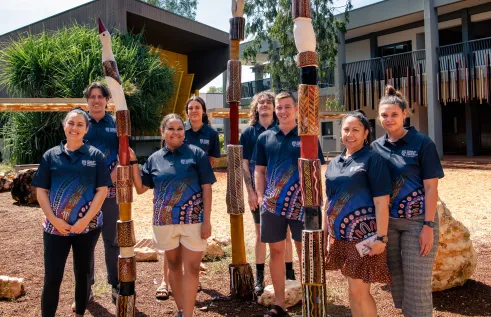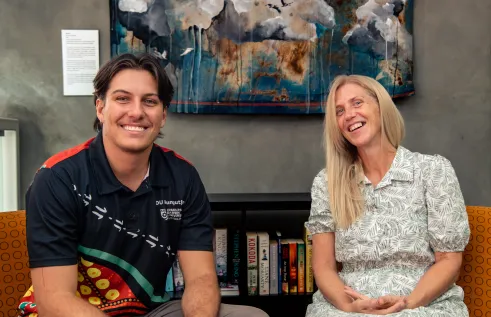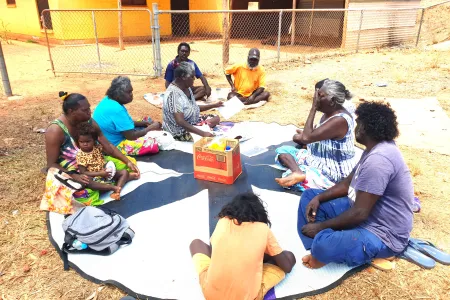News
Project to strengthen Indigenous response to disasters for sustainable community development
A research team engaged with Indigenous community members to discover ways to strengthen cultural responses to natural and social disasters for sustainable health and development through a PhD project.
The award-winning project underwent at Galiwin’ku community on Elcho Island aimed to revive and enhance Yolŋu law, knowledge, culture and governance around events such as cyclones.
The team included Indigenous researchers from Galiwin’ku’s Yalu Aboriginal Corporation as well as academics from Charles Darwin University (CDU), Menzies School of Health Research and the University of Canberra.
The project was prompted by the Cyclones Lam and Nathan that struck Elcho Island in 2015 when 80 homes were destroyed, and hundreds of people were displaced.
Residents were left without water and power for many days and a week after the cyclones 250 residents were still homeless. The cyclones caused huge psychological and emotional stress and trauma to the residents.
Through the PhD project, researchers learned how, prior to colonisation, the sophisticated worldviews, knowledges and cultural practices of the Yolŋu reduced the risk of natural disasters, empowered them to face disasters, and facilitated recovery.
CDU Senior Yolŋu Research Fellow, Associate Professor Elaine Lawurrpa Maypilama said burmulalas (cyclones) were cherished in traditional Yolŋu society.
"The stories the Yolŋu shared, the songlines and dances show how burmulalas were a natural part of Yolŋu life,” Associate Professor Maypilama said.
“Prior to colonisation, when people lived in connected and harmonious relationships with nature, burmulalas were smaller and less intense. They cleansed and refreshed everything and gave new life.”
CDU PhD researcher Tahir Ali said the project presents new two-way strategies based on the perspectives of Yolŋu peoples.
“The project aimed to revive Indigenous cultural practices and knowledges for sustainable health and community development through two-way approaches,” Tahir said.
The PhD thesis was awarded the Thesis Excellence Award.
Related Articles

CDU students ready to make their mark at Indigenous Nationals games
For the second year ever, a team of 14 talented and athletic Charles Darwin University (CDU) students will compete at the upcoming Indigenous Nationals games, set to take place in Melbourne next week.
Read more about CDU students ready to make their mark at Indigenous Nationals games
CDU joins celebration of the Barunga Statement’s 35th Anniversary at annual festival
The historic Barunga Statement, a pivotal moment in the journey towards First Nations rights in Australia, commemorates its 35th anniversary this year at the annual Barunga festival.
Read more about CDU joins celebration of the Barunga Statement’s 35th Anniversary at annual festival
First Nations students celebrated in Valedictory Ceremonies
The drive to help their fellow humans is at the forefront of the minds of two Charles Darwin University (CDU) First Nations students graduating this week.
Read more about First Nations students celebrated in Valedictory Ceremonies
